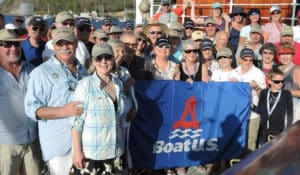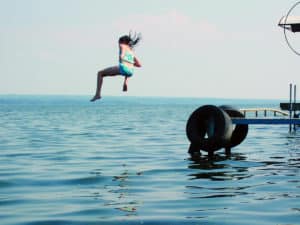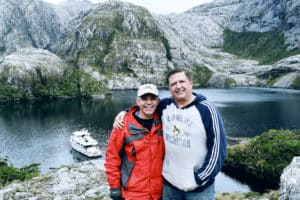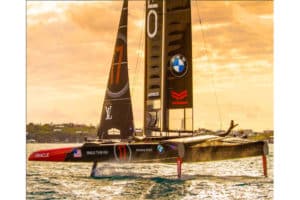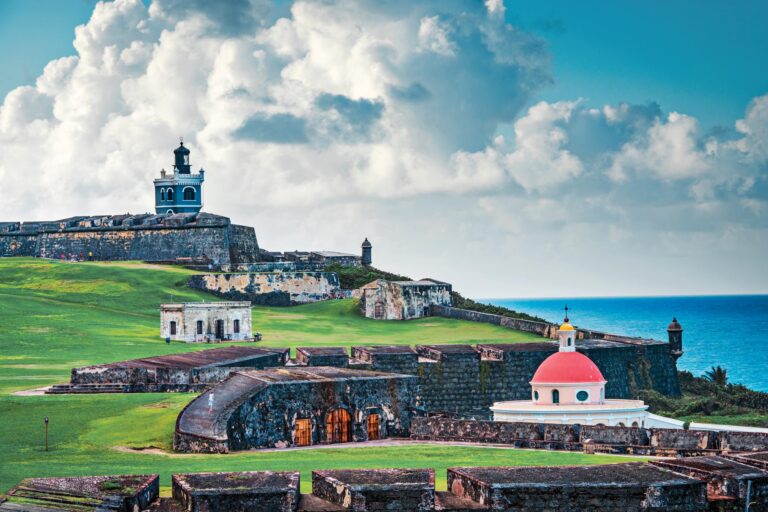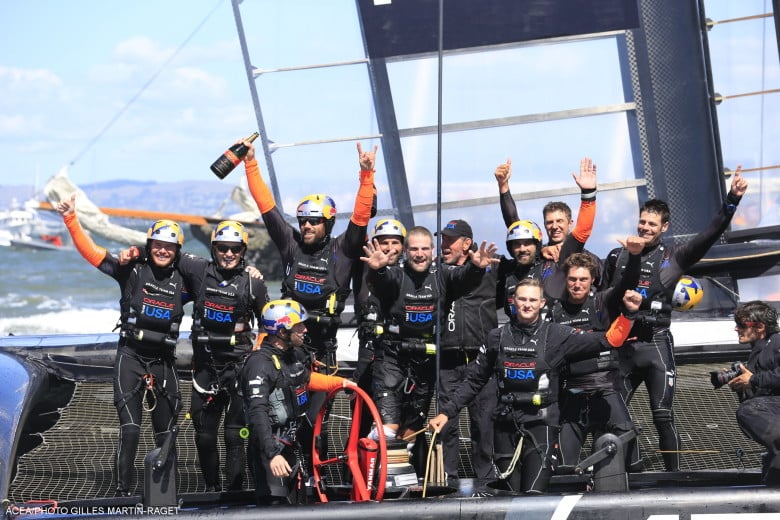
Oracles wins the America’s Cup 2013
You’ve got to hand it to Jimmy Spithill—he knew he wasn’t crazy.
Exactly a week ago, Spithill faced an international media corps after losing his eighth race to Emirates Team New Zealand (ETNZ) and claimed to like his situation, boldly advising us not write-off Oracle Team USA. We tried to be polite, but what are the odds of pulling-off an eight-run winning streak to defend the 34th America’s Cup? Moreover, what are the odds that he actually believed these media-friendly words?
100% on both counts, mate.
Today’s chessboard was perfectly set: winds in the high teens, a flood tide (read: reasonable wind limits), flat water, and two perfectly matched teams racing aboard the world’s two most sophisticated yachts, each staring at the sudden-death reality of match point versus match point.
ETNZ entered the starting box first and on the favored port tack, and skipper Dean Barker aggressively defended the leeward side of the line. Spithill faked an early hook move before committing to a windward assault. The gun sounded and both boats surged across the line at pace, immediately lighting-up their foils, with the Kiwis doing an outstanding job of staving off Oracle’s roll-over attack.
Oracle’s first heart-stopping moment occurred when she came off her foils hard, plunging her bows deep into the brine and allowing the Kiwis to fly around the first mark with a six-second advantage. Spithill recovered and immediately gave chase, splintering the Kiwis’ lead to a scant 40 meters. Mere boat lengths separated the two AC72s as Barker and Spithill RIPPED towards the leeward gate, the Kiwis banging a leftie—in the lead by 0:03—while Oracle opted for the right-hand option.
Headsails were trimmed on hard as the two boats scorched to weather, with ETNZ enjoying the tide-protected waters behind Alcatraz. Rudders turned and the boats converged: ETNZ commanded a thin-but-promising lead on the first crossing.
Which brings us up to Oracle’s second heart-stopping moment(s), as Spithill and company dropped the hammer, winning the next crossing and then simply motoring to weather. “This is it! Work your asses off!” thundered Oracle tactician Ben Ainslie, and the jacked shoulders of ten massive and perfectly synchronized sailors meshed with their multi-million dollar flying machine, delivering the most stunning upwind performance in Cup history. Barker and crew could only watch in suspended horror as “USA 17” walked away.
But it wasn’t quite over. Oracle’s third heart stopping moment occurred as they scorched around the windward gate, nearly dumping their apple cart. Fortunately, the wing eased and the leeward foil lifted at just the right time, and Oracle’s boat speed skyrocketed. Checkmate.
For ETNZ, the moment was devastating: Just last week the Cup was theirs; now, they’re returning to Auckland empty-handed. Again. What did they do wrong today? Absolutely nothing: They won the start, they won the first two mark roundings, but—ultimately—they simply got rolled by a team with a faster boat, better-funded shore-side resources and a brilliant design/engineering team.
For Oracle, however, it’s party time as the team savors the greatest comeback in America’s Cup history. Hats off to this never-say-die squad and their sane-after-all skipper for showing the entire world what high-stakes sailing can be—it was a show we’ll ever forget!
So what’s next? Oracle has announced that they have an official Challenger of Record (still undisclosed but widely rumored to be Artemis Racing) for the 35th America’s Cup, but date, location, vessel type and myriad other germane details are all still TBA. Hopefully, the Defender will listen to the international community and lower the financial hurdles of a challenge, allowing for more participation (remember the 1983, 1987 and 2007 Cups?), but these decisions—and the responsibilities they represent—rest once again with Larry Ellison and Oracle Team USA.

